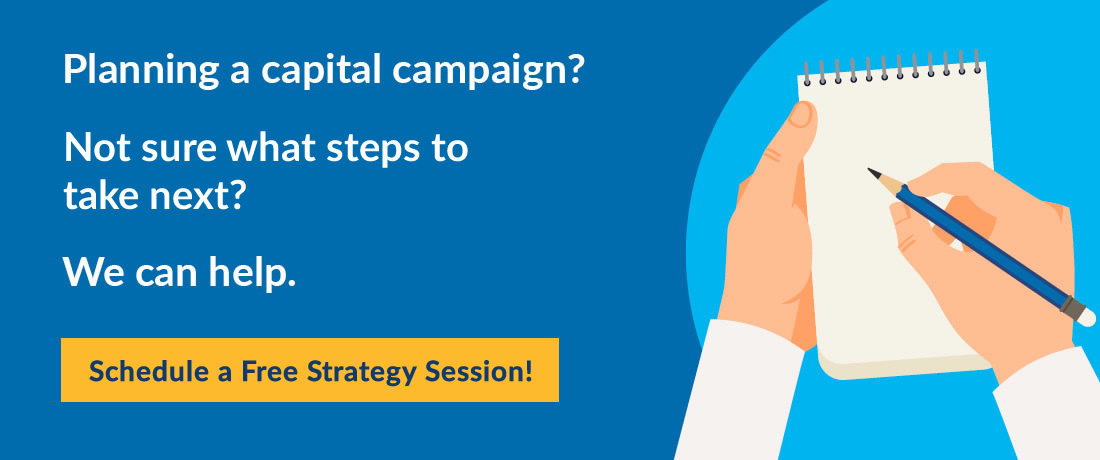Spend Money to Make Money: Cliché or Capital Campaign Truth?

When it comes to raising money, how and when to invest in fundraising is a common discussion (okay, argument) had by many nonprofit leaders.
You’ve probably asked some or all of these questions around your conference room table:
- Should we invest in wealth screening?
- Should we pay for an experienced major gift officer (or any professional fundraiser)?
- Should we hire a fundraising consultant?
Sound familiar? This list could go on and on.
Simple Clichés or Capital Campaign Truths?
No doubt, you’ve heard the expression:
You’ve got to spend money to make money.
Depending on your experience, you may believe it to be true or simply a cliché. Here’s another you might know:
Pound wise and penny foolish.
Is your board full of penny pinchers? Are they always looking to save a buck now, but potentially harming the future of your organization by not investing in potential growth?
While these sayings are clichés, there are definitely grains of truth to them both. And that leads to an even more important question about your fundraising…
What’s a Good ROI for Your Fundraising?
So, what’s a good ROI (return on investment) when it comes to fundraising? For example, if you spend $10,000, how much can you expect to get back and how soon?
The answer is, “it depends.” There’s no “one size fits all” when it comes to fundraising. And there are no guarantees, which makes many leaders hesitant to invest in it.
That being said, capital campaigns have an excellent ROI. In general, successful campaigns will budget to invest about 10% of their campaign goal on running the campaign. That means, it costs only $1 for every $10 raised.
Yes, It Takes Money to Make Money
When it comes to capital campaigns, you’re going to have to spend money before contributions start to come in. You may not know where the initial money / investment will come from. But before we get to that, let’s explore why spending money is necessary in order to launch your capital campaign.
Here are some early expenses you’ll likely need to cover BEFORE you can start asking most donors for money:
- Purchasing property
- Hiring campaign expertise
- Paying an architect
- Conducting a feasibility study
- Developing your plans
Where does this early money come from?
You’re probably wondering, “what if we don’t have $50,000 (or whatever you’ll need) to invest in the first place?”
We have a couple suggestions for how you can get started.
2 Ways to Acquire Early Funding for Your Campaign
While there are several places the early funding can come from, here are two of the most common.
1. Donors (particularly board members)
Sometimes the early money for exploring the possibility of a campaign comes from one or two key board members or other donors. These people are forward thinking and not risk-averse. They understand their early funding provides the hope and possibility for a campaign.
Without this early funding, a campaign is unlikely, because there are some necessary upfront expenses to jump-start a campaign — or even determine the possible scope and scale of a campaign.
2. Drawing on cash reserves or quasi-endowment
Drawing money from the cash reserves or quasi-endowment (board designated endowment) of your organization are often good options. These funds would then be paid back by campaign contributions.
Taking money from your quasi-endowment requires board approval, of course. The amount and terms of the ‘loan’ from the reserve / endowment should be spelled out and voted on by your board.
Spending Money to Make Money for Your Cause
Capital campaigns are one of the best examples of spending money to make money. A campaign typically costs about 10% of the money it raises. That’s a pretty good ROI by any standards.
For example, if your project and fundraising goal is $10 million, you should expect to spend $1 million (over three years) for campaign expenses. Of course, that means you need to actually raise $11 million ($10 million for your project and $1 million to pay for the campaign itself).
If you want to talk with us about budgeting for your campaign, sign up for a free strategy session. We’ll help point you in the right direction.




Leave a Comment